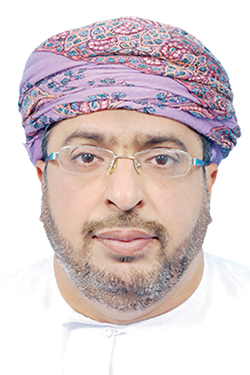

His Majesty Sultan Haitham bin Tariq expressed in his first speech after the end of the official 40 day mourning period for the late Sultan Qaboos bin Said – may his soul rest in eternal peace — great concern for a host of issues that require attention for the new phase of Omani renaissance, including financial issues.
In the speech, HM noted the government’s keenness on the optimal use of financial resources, ensuring reduced debt and increased income, achieving financial stability and promoting economic diversification.
The issue of public debt has become a burden for many countries and societies, especially oil-producing Arab states, in light of the challenges resulting from declining oil prices and diminished policies for economic diversification. Accordingly, oil countries are forced to go into debt, internal and external. Since our dependence on the oil sector is high, with oil revenues representing about 74 per cent of the total revenues, the trend of internal and external borrowing has become necessary to meet obligations and expenses, leading to higher debt and services (interest).
Reviewing external debt figures for the Sultanate during the past five years, the total amount of the country’s debt recorded a significant increase, from RO 1.4 billion in 2014 to RO16.6 billion in 2019, while external debt currently accounts for 77 per cent of total public debt according to the data published by the Ministry of Finance and the Supreme Council for Planning.
Sovereign debt of the Sultanate has doubled over the past years, which constitutes a major challenge and requires due diligence. Oman’s public debt exceeds 55 per cent of the GDP at constant prices for 2019, which requires strengthening economic diversification policies and the need for rationalization of expenditure whilst continuing to develop non-oil sectors and strengthening trade relations with the world to benefit from their experiences in developing those sectors.
The expectations of oil prices seem different today in light of the spread of the Corona virus pandemic that is causing the price to plummet under $50 a barrel, and this is what must be realized here in light of the Royal Directives of His Majesty.
The government approved $58 a barrel in this year’s budget as per the average oil prices for the past year 2019, which amounted to $ 65 a barrel. Actual oil revenues in 2019 reached RO 6.1 billion, while the approved was RO 5,465 billion. In addition, there was an increase in gas revenues by 1 per cent or RO 2 billion. The good news is that non - oil revenues recorded an increase of 13 per cent in 2019 to reach RO 3 billion.
Thus, sovereign debts and service will pose a major challenge to the government in the upcoming years if appropriate measures are not taken in government operations.
The Sultanate is seeking to meet these financial challenges, as required today under the Royal Directives of His Majesty, for the government to exercise all caution and transparency with this issue, take appropriate decisions and actions that can limit the impact of debt burden and increase income and develop good financing tools to reduce deficit. This requires collective efforts by the public and the government to enhance economic diversification programs, strengthen the role of national companies and institutions in the private sector, review and reduce programs of public spending and proceed with the privatization of some state -owned companies that His Majesty referred to in terms of the need to comprehensively review their operations to develop performance, raise efficiency and enable them to contribute effectively to the economic system.
The next phase also requires promoting non-oil revenues, creating a stimulating and attractive investment climate for private sector investments, encouraging partnership between the public and private sectors, boosting the national economy, strengthening infrastructure projects and improving business environment of to attract more foreign investment.
Oman Observer is now on the WhatsApp channel. Click here



